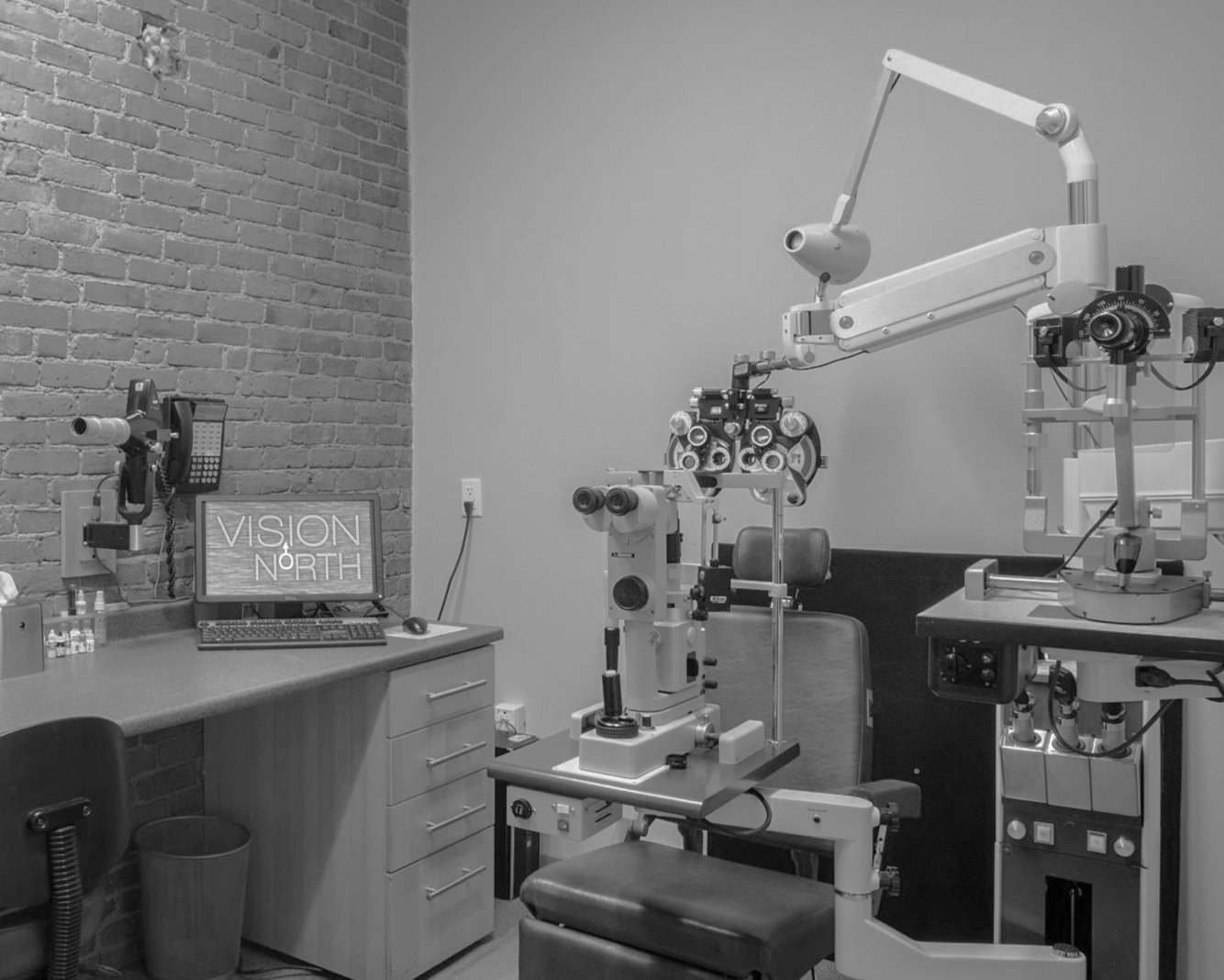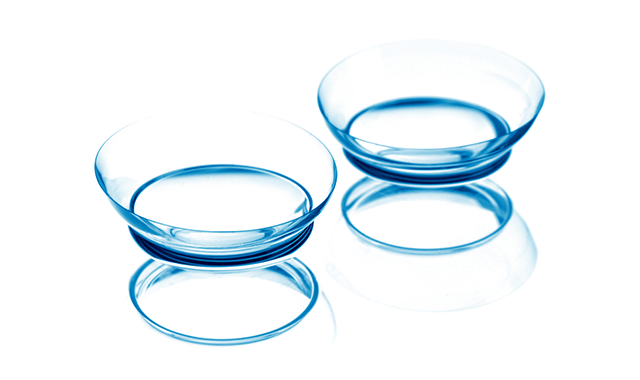Contact Lens Exams and Fittings
-

Contact lenses are an incredible option when it comes to managing your nearsightedness (myopia), farsightedness (hyperopia), astigmatism or presbyopia (need for reading glasses).
-

Vision North is proud to offer the latest in lens technology and can offer a contact lens option to almost any patient. Whether you’re looking to wear contact lenses for sport or every-day use, the Vision North team looks forward to helping you find a contact lens that best fits your needs.
-

Contact lenses are typically worn to correct nearsightedness, farsightedness, and astigmatism. With developments in contact lens technology, we can now use them to manage eye conditions such as dry eye disease and keratoconus.

Everyone’s eyes and vision are different, so a contact lens exam and fitting are essential to ensure your comfort.
-
With our state-of-the-art equipment we will measure the size and shape of your eye so your lenses will fit properly and be comfortable.
-
We will check your vision and ask questions about what your goals are when it comes to the contact lenses.
-
Because contact lenses rest directly on your eyes, we will carefully examine the eye for any signs of ocular surface disease or irregularity that might interfere with successful contact lens wear.
-
Using all the information gathered, we will select a series of contact lens trials for you, and if you are new to contact lenses, we will teach you how to insert and remove the contact lenses. You will be sent home with lenses to trial and we will encourage you to take notes on what you are noticing (Are they comfortable? Are you able to see what you need to see?)
-
Once you’ve tried the trial lenses, we will either re-evaluate and make adjustments based on your feedback, or write you a final prescription that you can use to order a supply of contact lenses.
-
Your final contact lens prescription will include information that differs from your eyeglasses prescriptions, such as: diameter of your lenses, brand of your contact lenses, curvature of the lenses.
There is also an expiration date for buying replacements (contact lens prescriptions in Massachusetts expire after 1 year).
Contact Lens Care
Contact lens wear is associated with a risk of complications. The most common complications include infection or discomfort. We strongly encourage all of our patients to follow the below guidelines in order to minimize the risk of complications related to contact lens wear. These guidelines have been developed based on recommendations from the American Optometric Association and our own experience.
-
01
Wash your hands thoroughly with antibacterial soap prior to handling, inserting or removing your contact lenses.
-
02
Examine your contact lens before insertion; you do not want to wear lenses that have any defect (i.e. holes, tears, debris).
-
03
Do not sleep in your contact lenses.
-
04
Do not swim or shower in your contact lenses; the water of your shower, pool or hot tub may be contaminated with bacterias that will cause serious infection under the contact lenses. If you must swim, be careful to wear goggles that will prevent water from entering the eye.
-
05
Contact lenses are to be disposed of in the trash; disposing of lenses down the drain is a source of water’s contamination.
-
06
Replace contact lens solution daily; re-using contact lens solution is akin to re-using bathwater.
-
07
When rinsing your contact lenses, use a contact lens solution; NEVER use water to rinse your lenses.
-
08
Replace your contact lens case each time you replace your bottle of contact lens solution, or monthly.
-
09
When in doubt, take the lenses out; if the contact lens is uncomfortable, remove the lens and contact our office for advice on how to proceed.
-
10
Annual eye exams are required to make sure that the contact lens and the surface of your eye are well matched. Contact lens overwear can result in irreparable damage to your eye; an eye exam will detect the first signs of overwear.

Types of Contact Lenses
-
Soft contact lenses are made of soft, flexible plastics and allow oxygen to pass through to the cornea. These lenses can be easier to tolerate and tend to be more comfortable than RGP lenses. Newer materials used for soft lenses include silicone-hydrogels to provide even more oxygen to your eyes. How often the lenses need to be replaced depends on the design (some are replaced daily, others are replaced monthly - check with your doctor if you’re unsure about how often you should be replacing your lenses).
-
RGP contact lenses are more durable than soft contact lenses. These lenses are also resistant to deposit buildup and tend to last longer than soft contact lenses. RGP lenses are often harder to tolerate, and it can take up to a few weeks for your eyes to fully adjust compared to a few days for soft contacts.
-
Hybrid contact lenses are a combination of RGP material and soft lens material. They exhibit a rigid gas permeable center surrounded by a soft outer ring. These lenses focus on correcting nearsightedness, farsightedness, astigmatism, and presbyopia. Hybrid contact lenses also address keratoconus, which is an irregular corneal curvature. These lenses can sometimes be more comfortable to wear than traditional RGP lenses.
-
Scleral contact lenses are much larger than the standard RGP contacts. They are an excellent option for patients dealing with conditions such as keratoconus and dry eye disease. Scleral lenses, instead of resting on the cornea, are designed to rest on the sclera (the white of your eye) and allow for space over the cornea’s surface. The space between the cornea and the back of a scleral lens allows for more fluid to be stored and makes it more comfortable for patients with dry eyes.
-
Multifocal contact lenses are available as a soft contact lens or RGP. Multifocal lenses utilize a bifocal design with two or more distinct lens powers that allow for near and distant vision. Multifocal lenses are an excellent option for patients with presbyopia and can eliminate the need for reading glasses.
-
Orthokeratology (a.k.a. Ortho-K or CRT) contact lenses are RGP lenses that are meant to be worn overnight. The shape of the lens is to temporarily reshape the corneal surface in a way that manages nearsightedness (myopia). Recent research has identified Ortho-K as a means of Myopia Management; children that are fit in Ortho-K may lower their risk of High Myopia. High Myopia is associated with a higher risk of complications such as retinal detachment and floaters.
We can’t wait to help you find the perfect set of contact lenses.





